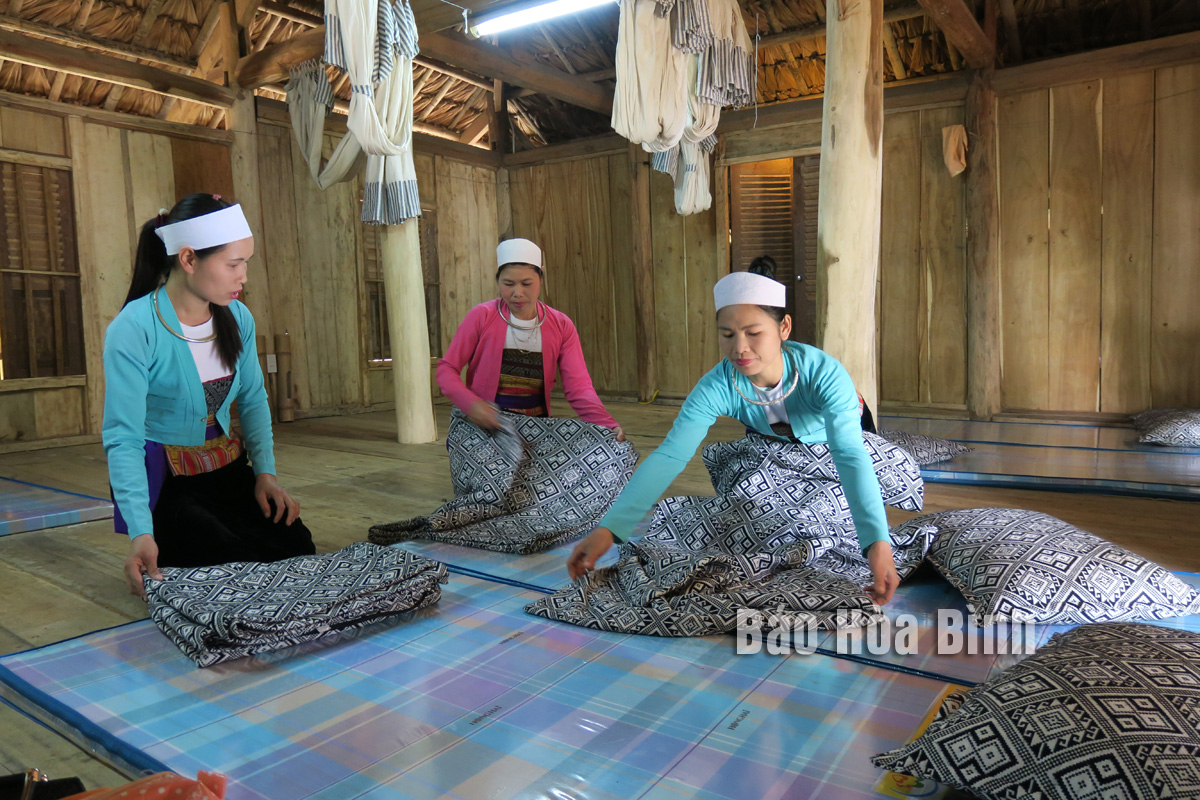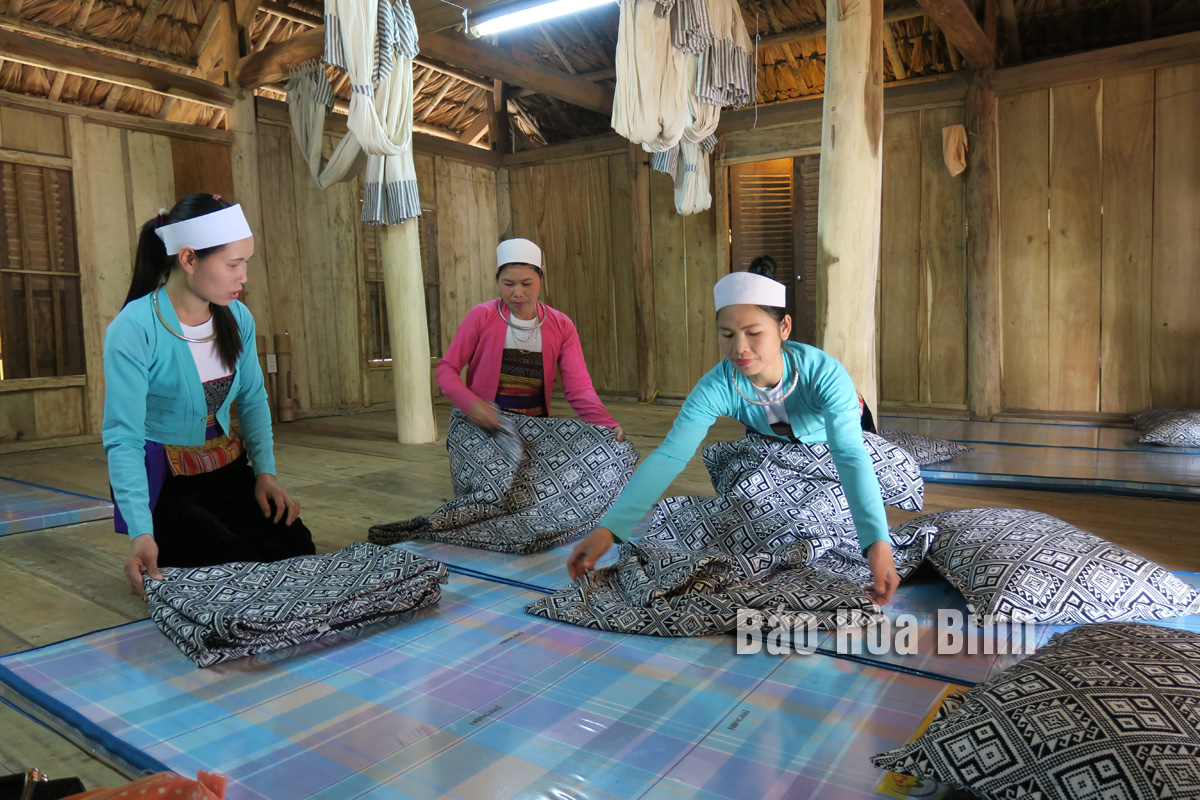
Donning a picturesque patchwork of white and pink hues, courtesy of the blooming plum and peach flowers in spring, community-based tourism villages in Hoa Binh province have drawn a large number of visitors from far and wide, helping mountainous localities get out of poverty.
Ethnic women in Ngoi village, Suoi Hoa commune, Tan Lac district, are making meticulous preparation to welcome visitors.
According to Deputy Director of the provincial Department of Culture, Sports and Tourism Bui Xuan Truong, local community-based tourism has been attractive to both domestic and foreign visitors.
Twenty-two community-based tourism villages with 180 homestays have been developed in the province so far, bringing a better life to the Muong, Thai, Mong and Dao people, he said, adding many households have escaped poverty thanks to tourism.
The community-based model was developed in Chien hamlet - a small Muong village with difficulties in 2019 with the support of the Australian non-governmental organisation Action on Poverty (AOP). After four years of operation, it has helped the hamlet position itself in the province’s tourism map with more visitors coming to experience local landscape and culture.
Mai Hich commune in Mai Chau district, bestowed with scenic beauty and unique cultural traits, has branched out community-based tourism, with 11 households in Hich 1, Hich 2 and Cha Lang hamlets providing this kind of service. Each homestay in the district could accommodate up to 30 guests.
Although the commune has not gained popularity like Lac village or Pom Coong village, it has drawn an increasing number of domestic and foreign arrivals, bringing better income for local residents.
Meanwhile, Sung hamlet in Cao Son commune, Da Bac district, locating in the foot of Bieu mountain, has become a magnet for tourists who come to enjoy the standout cultural traits of the Dao Tien ethnic people.
Being introduced to indigo-dying technique and traditional brocade-weaving craft, giving it a try to print patterns on fabric with beeswax and healing themselves with Dao herbal bathing are among the most interesting experiences that visitors have while staying in the hamlet. Beyond cultural exchange, community-based tourism has contributed to creating jobs and increasing income for local residents.
A diverse chain of eco-tourism and resort destinations concentrated in Hoa Binh city and the districts of Tan Lac, Da Bac, and Luong Son… Along with the launch of several key high-quality resort tourism projects, these developments have reshaped the landscape and enhanced the appeal of Hoa Binh as a travel destination.
Boasting diverse terrain, a mild climate, and rich natural resources, Cao Phong district is increasingly asserting its place on Vietnam’s tourism map, attracting both domestic and foreign visitors. The district is renowned for its stunning landscapes, majestic mountains, a crystal-clear hydropower lake, and the unique cultural identity of local ethnic groups.
With its pristine landscapes, unique cultural heritage of Muong ethnic minority, and an expanding range of visitor experiences, Tan Lac district of Hoa Binh has fast become a captivating destination for both domestic and international tourists.
Until now, Sung village in Cao Son commune, Da Bac district remains the only Dao ethnic community in Hoa Binh province to develop a community-based tourism model. Beyond its untouched natural landscapes, cultural identity serves as the cornerstone attraction for visitors.
Alongside the diverse cultural identities of the Kinh, Muong, Tay, Thai, Dao, and Mong ethnic people, Hoa Binh province is also renowned as the "capital" of the northwestern Vietnamese cuisine, offering unique and distinctive dishes. At festivals, during Lunar New Year (Tet), or on significant family or community occasions, special dishes are prepared, leaving a lasting impression on visitors.
A Phong Linh (Yellow Tabebuia) flower garden in Thang village, Thach Yen commune, Cao Phong district is currently in full bloom, drawing a large number of visitors.



